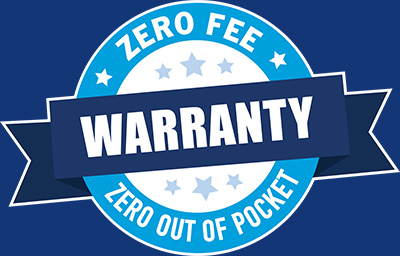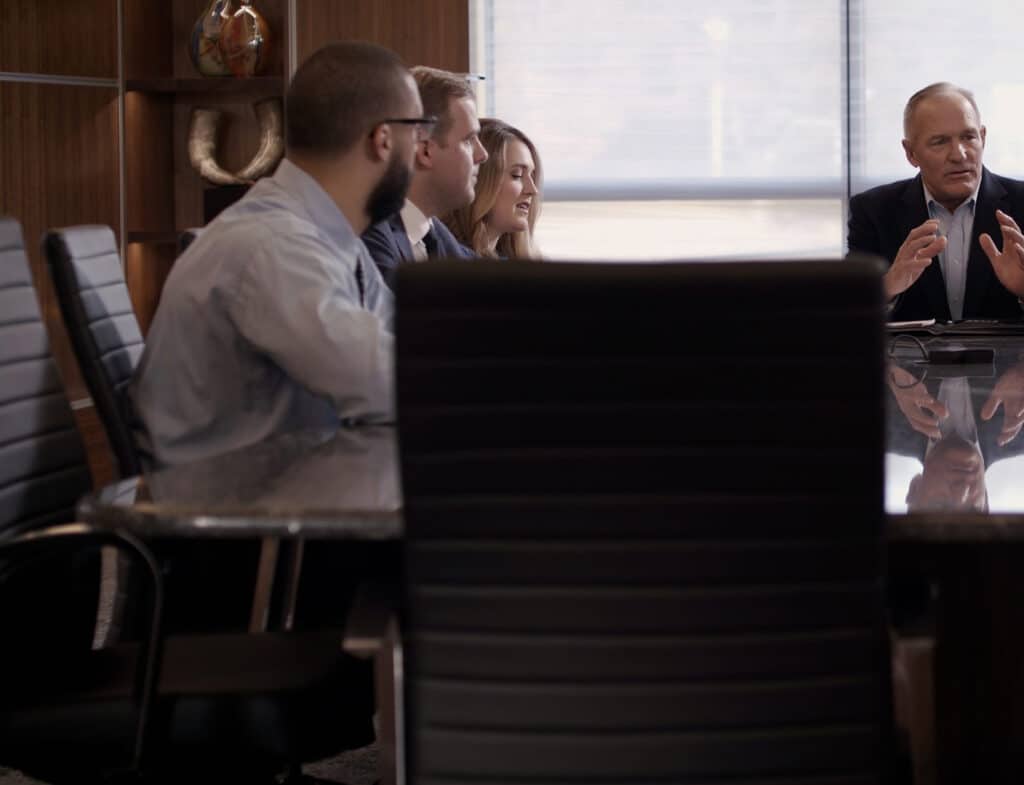

You pay us
nothing
![]() until we win your case
until we win your case
Carter Mario
Alex Mario
Luke Mario
Slip and Fall Lawyers | Premises Liability Claims
If you were recently injured in a slip and fall accident, the slip and fall attorneys at Carter Mario Law Firm can help you pursue a premises liability claim. Our award-winning team of experienced personal injury lawyers has recovered over one billion dollars in financial compensation for our clients, including those injured in slip and fall accidents. Our Connecticut slip and fall lawyers are dedicated to fighting for the maximum compensation you deserve.
Slip and Fall Accidents Are Addressed by Premises Liability Litigation
Premises liability law covers the legal responsibility a property owner or occupier holds to ensure their property is safe for visitors. When a slip and fall accident occurs on another person’s property, the victim may be able to bring a premises liability claim against the owner or occupier if a dangerous condition on the property caused the accident. Due to the legally complex nature of slip and fall accidents, experienced representation by a skilled Connecticut personal injury attorney is necessary due to the fierce defenses asserted by insurance companies.
What is Premises Liability?
Owners or occupiers of property have a legal duty to maintain their property for potential visitors. Under longstanding Connecticut law, the duty a property owner or occupier owes to a victim depends on the victim’s reason for being present on the property. A premises liability claim is a legal theory of negligence which allows slip and fall victims to sue owners or occupiers who fail to maintain their property.
Who is Involved in Premises Liability
Slip and fall victims can typically pursue claims against owners or occupiers of property, e.g., business tenants. Under the “non-delegable duty doctrine,” injured victims can still sue property owners even if they use third parties to maintain the property. There are three categories of visitors who may be involved in a premises liability case: invitees, licensees, and trespassers.
Invitee
Under Connecticut law, an invitee is a person who is invited onto the property for a specific purpose, such as a customer at a store or a patient at a hospital. Property owners or occupiers owe invitees the highest duty of care and must ensure the property is safe and free of hazards. Specifically, this duty means property owners or occupiers must maintain the property, conduct regular inspections, and warn visitors of potential risks.
Licensee
Connecticut law defines a licensee as a person who is on the property for their own purposes but with the permission of the owner or occupier, e.g., a social guest. Property owners or occupiers owe a lesser duty of care to licensees. Unlike the duty owed to invitees, Property owners or occupiers are only obligated to warn licensees of known dangers.
Trespasser
A trespasser is a person on the property without the owner’s or occupier’s permission. According to Connecticut law, trespassers are owed the lowest duty of care as owners or occupiers must merely refrain from setting traps or intentionally harming trespassers. However, there are some exceptions to this rule, such as if the owner or occupier knew or had reason to know a trespasser was on the property and failed to take reasonable steps to prevent the injury.
What Must Be Proved in a Premises Liability Case?
To bring a successful premises liability claim, a victim must prove that the property owner or occupier knew or should have known about the dangerous condition on the property and failed to take reasonable steps to fix it or warn visitors about it. Alternatively, a victim must prove the owner or occupier created the dangerous condition and failed to repair or provide sufficient warning. Under either theory, a victim must prove their case by a preponderance of the evidence, i.e., 51%.
Contact Carter Mario To Pursue Your Slip and Fall Claim
If you have been injured in a slip and fall accident on someone else’s property, you need the experienced Connecticut slip and fall attorneys at Carter Mario Law Firm by your side. Insurance companies frequently defend claims by arguing property owners or occupiers lacked knowledge of the hazardous condition, took reasonable steps to repair or provide warning, or that the victim’s level of negligence exceeded 51% due to the open and obvious nature of the hazardous condition. Contact us today to schedule a free initial consultation so we can begin investigating the facts of your fall to build a strong case against the property owner or occupier.
What Caused Your Fall
There are many different causes of slip and fall accidents. Depending on the location of an accident, e.g., a grocery store vs. a hotel, slip and fall accidents result from a variety of hazardous conditions including:
- Obstructed Walkways
- Unmarked Elevation Changes
- Broken Steps or Platforms
- Wet, Polished, or Waxed Floors
- Poor, Broken, or Missing Lighting
- Uneven Pavement
- Trash or Debris on the Ground
It is important to determine the cause of your fall to determine who may be liable for your injuries.
Common Injuries from Slips and Falls
Slip and fall accidents can result in victims suffering a wide range of life-altering and severe injuries. Some of the most common injuries sustained by victims from slips and falls include:
- Partial or Complete Paralysis
- Spinal Cord Injuries
- Traumatic Brain Injuries
- Internal Organ Injuries
- Neck Injuries
- Fractures
- Lacerations
- Muscle Strains
- Sprains
- Lacerations and Bruises
- Head Injuries, including Skull Fractures
- Back Injuries, such as Herniated Discs
It is important to seek immediate medical attention after a slip and fall accident, as some injuries may not be immediately apparent.
Talk with a Connecticut Slip and Fall Attorney at Carter Mario Law Firm
Many personal injury law firms decline to represent slip and fall victims as they are unwilling to litigate complex cases against powerful insurance companies. At Carter Mario Law Firm, our Connecticut slip and fall lawyers refuse to be intimidated and instead conduct detailed investigations of slip and fall accidents to gather evidence and build strong cases for our clients. To learn more about our services, contact us today for a free consultation.
Slip and Fall FAQs
Due to popular culture, slip and fall claims are widely misunderstood and widely parodied. The reality is they are serious accidents which cause victims to suffer painful injuries. At Carter Mario Law Firm, our personal injury attorneys have spent over 30 years successfully litigating slip and fall cases throughout Connecticut.
How Can I Avoid Slips and Falls on My Property?
If you own or occupy property, there is always a risk a visitor can suffer an injury due to a fall. To prevent slips and falls on your property, you should take the following steps:
- Keep your property well-maintained, including regularly inspecting and repairing any hazards
- Keep floors clean and dry, and use warning signs or cones to alert visitors to wet or slippery areas
- Make sure that all walkways and stairs are in good repair and have handrails if necessary
- Keep clutter and debris off the ground, and make sure that any electrical cords or other tripping hazards are out of the way
- Use non-slip flooring materials in areas that are prone to getting wet, such as near sinks or showers
How Much Does It Cost To Hire a Lawyer?
You do not have to pay any upfront fees to hire a Connecticut slip and fall lawyer. At Carter Mario Law Firm, we represent slip and fall victims on a contingency fee basis, which means you do not pay us unless we win your case in court or negotiate a favorable settlement. Additionally, under our Zero Fee Warranty, our personal injury lawyers never earn more than you.
How Long Do I Have To File After a Slip And Fall Injury?
In Connecticut, the statute of limitations for bringing a personal injury claim, including a slip and fall claim, is two years from the date of the injury. This means you have two years to file a lawsuit or pursue a claim for damages. If you do not file within this time period, you are likely barred from recovering any compensation for your injuries.
What Expenses Do Slip and Fall Claims Compensate?
In Connecticut, you can claim economic and non-economic damages due to a slip and fall accident. Specifically, you can claim the following financial losses as your economic damages:
- Past and Future Medical Expenses
- Hospital Stays
- Surgery
- Physical and Occupational Rehabilitation
- Past and Future Lost Wages
- Other Out-of-Pocket Expenses, such as the Transportation or Hiring Costs
With regard to non-economic damages, you can claim the pain and suffering for the physical and emotional distress caused by the accident.
SIX BRICK-AND-MORTAR LOCATIONS IN CONNECTICUT
Carter Mario has convenient locations around Connecticut to serve you. Click on your location below to learn more!

Why choose Carter Mario?
We want justice and what’s best for you and your case. Here’s our promise:
-
A Team That Puts You First!
Our clients are our #1 priority and everything we do is focused on getting you the best result! You are the reason we became lawyers. To the insurance company, you are no more than a claim number but to us, it’s personal. We’re here for you 24/7, 365 days a year. We communicate often and call you back the same day or lunch is on us. We believe an informed client is a happy client. You are the reason we fight!
-
Over $1 Billion Recovered!
For over 30 years, we’ve fought fiercely and tirelessly against Big Insurance and won countless victories for our clients. You were already hurt physically when you came to us, but we make sure you aren’t hurt financially when you leave. Our goal is to give you a better tomorrow.
-
Experience On Your Side!
No obstacle is too big. Our seasoned attorneys were handpicked and know how to hold the insurance companies accountable. We have experience in and out of the courtroom. Our attention to detail and in-depth investigation helps identify key evidence we use to prepare your case. Our attorneys have the knowledge, the dedication, and the passion it takes to win. They love what they do.
-
We Have a Large War Chest!
When we go to trial, we are battle ready, but taking a case to trial takes more than confidence, experience, and commitment. It takes cutting edge technology and a War Chest to support the costs of zealous representation. Many firms aren’t willing or don’t have the resources and financial stability to front your costs and maximize your case. We’ll spend whatever it takes to get you every penny you deserve!
-
Making the Law Make Sense!
At Carter Mario Law Firm, our mission is to make the law make sense. You’ve been injured and it wasn’t your fault. Life is suddenly overwhelming and confusing, and you don’t know where to turn. You need help, but it matters who you get. Let us come to your rescue. We’ll do the work, so you don’t have to. You can focus on you!
You Pay Us Nothing Unless
We Win Your Case
Call (203) 876-2711 or Contact Us For a No-Obligation Case Evaluation. Our attorneys are standing by to evaluate your case, answer any questions, or discuss your next steps. Getting the compensation you deserve starts here!
"*" indicates required fields
Client Victories
We’ve Recovered Over $1 Billion for Clients
Just Like You

$17M
Rear-End Collision
Our client sustained a significant injury to his cervical spine after a rear-end crash. After receiving a low initial offer from the insurance company, we fought hard for our client to get him the settlement he deserved.
$4M
Medical Misdiagnosis
Our client’s doctor misread an x-ray causing a delayed diagnosis of sarcoma, which resulted in our client’s death.
$3.9M
Failure to Treat
Gastroenterologist and primary care doctor failed to treat or transfer our client who was hospitalized for GI bleeding, which resulted in our client’s death.
$3.4M
Failure to Diagnose
Our client’s doctors failed to diagnose him with abdominal cancer, resulting in his death.
$3.4M
Medical Malpractice
Our client suffered brain damage, paralysis, and speech deficits after undergoing a bedside procedure.
$3.3M
Brain Damage
Our client suffered brain damage after their breathing tube was misplaced.
$3M
Failure to Diagnose
Our client’s doctor failed to diagnose Fournier’s Gangrene, resulting in necrotizing fasciitis, sterility, abnormal gait, and muscle loss.
$2.6M
Personal Injury Resulting in Death
Our client, an innocent bystander to a bar room brawl, required surgery for a ruptured Achilles tendon. After the surgery, our client developed a pulmonary embolism, resulting in his death.
$2.5M
Gas Poisoning
Our client suffered from carbon monoxide poisoning with cognitive loss after an on-site contractor ran gas engines during business hours.
Client Testimonials
Such a great experience
"I had such a great experience with Carter Mario Law Firm. Everyone was amazing, helpful and comforting during this stressful time."
– Michelle P.It felt really good to have someone
"My son suffered an injury after being hurt in a car accident, and it felt really good to have someone fighting for the person you love."
– Alex M.Tough and fearless
"Look no further, you have found the best personal injury law firm in Connecticut. Tough and fearless, and I cannot think of anyone better to represent me."
– Phillip Y.Attention to detail
"Look no further, you have found the best personal injury law firm in Connecticut. Tough and fearless, and I cannot think of anyone better to represent me."
– John L.Took so much stress off of me
"When I had my work-related injury, Carter Mario took on the workers’ comp insurance company that tried to belittle me and dealt with them, which took so much stress off of me. Thank you so much."
– Ruth H.